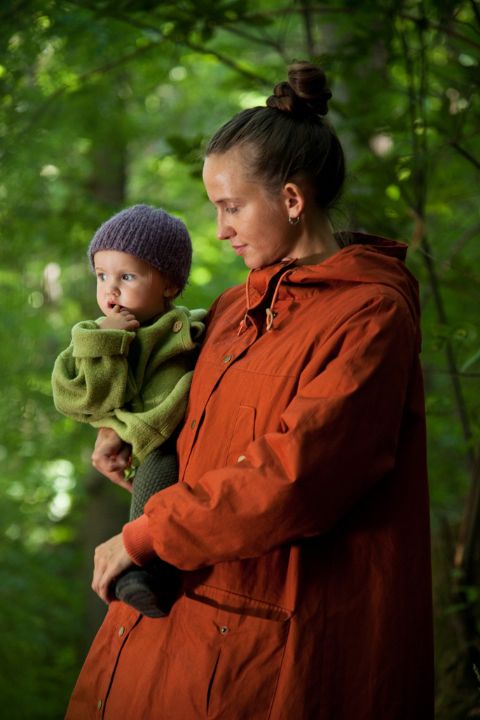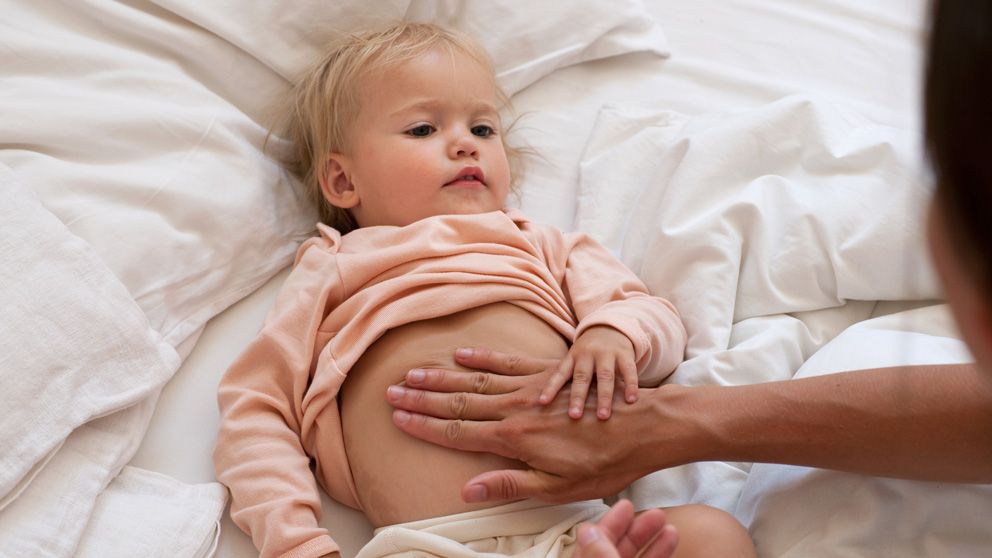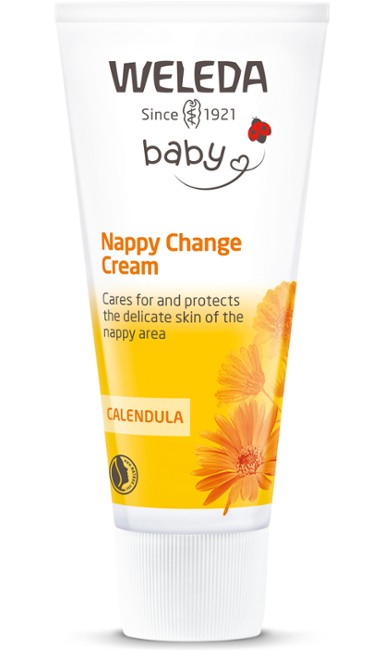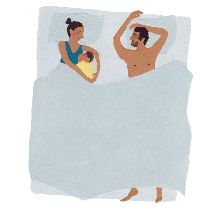
Children´s Health: The First Twelve Months
During their first six months of life babies tend to be quite healthy, protected by their mother’s own antibodies, which are passed on during pregnancy and later through the breast milk. At birth children also begin their own life in the world, meaning a gradual separation from the mother. This begins with the first breath and continues with digestion, movement and later to speech and thought.
Once they are born, babies need time to adjust to their environment with all of their senses, coping with a myriad of new impressions. This is why they need to sleep so much during their first months of life, between 14 and 17 hours per day; their new world is very different to the one they lived in before birth.
Instead of soothing security, cosy closeness and warmth in their mother’s womb, babies now encounter vast expanses, learn the feelings of cold and hunger, perceive smells and hear all noises unfiltered. Parents, too, must adjust to this new situation and become acquainted with their baby. This requires patience – not only with your child, but also with yourself. A midwife, lactation consultant, doula or good friends who themselves have children can all be sources of support and can help boost your confidence.
Baby Colic or Trapped Wind
It’s quite normal for babies to experience occasional trapped wind, accompanied by a hard abdomen and crying – these are among the challenges of adapting to their new environment.
“True” flatulence, however, is much rarer. In this case, the belly becomes hard and distended, the bowels don’t make a sound, and gas does not pass easily. Frequently the stool also smells worse than usual. The cause of bloating is often due to the lack of “good” bacteria (also called gut flora or microbiomes) in the intestines. Once a balance has been established – this is also supported through breastfeeding – the winds recede or disappear completely. Basically, it is important to breastfeed your child when it wants. This can be every 30 minutes, or after five hours. Ultimately, breastfeeding is more than merely to satisfy hunger. It provides intimacy, security and meets the basic needs of a baby.
Belly massages can help sooth restless babies experiencing adaptation difficulties or flatulence. Massages should be performed in a quiet environment, and it is best to use oils traditionally proven to be good for stomach pain.
Teething Discomfort
When children come down with their first fever and show signs of irritability at about six months of age, the reason will soon emerge – with the arrival of their first tooth! It must travel a long way through the jaw, and may take many weeks, months or even a year before finally coming through. During this time, the organism is heavily focused on the changes occurring within the jaw. This leads children to become more prone to colds, cough and fever. Sometimes the other end of the digestive system also reacts to the change, in the form of nappy rash.
Teething pain is not an illness, but getting teeth marks the next major step in a child’s separation from her or his mother. At this stage, mother’s milk should be complemented by solid food such as porridge and first fruits that the child can mash with their first teeth. Not by chance does teething pain often occur when children are in the process of testing their own physical range of movement. First teeth usually come out when a baby starts to crawl. By the time they learn to walk, toddlers have eight teeth on average. The first phase of autonomy generally begins once all of the baby teeth have arrived, at about two years of age.
Nappy Rash
Surprisingly, the delicate skin of a baby’s bottom can withstand a lot, and is not easily irritated by short-term contact with urine and faeces. However, if an inflammatory rash does occur, with redness, sores or even bleeding, the bottom should be exposed to fresh air as much as possible, enabling the affected area to heal. A nappy cream also helps the skin to regenerate and prevents itching. Changing the kind of nappy worn may also help.
These recommendations also apply to other causes of nappy rash in babies, such as gastrointestinal infection that unfavourably changes the gut flora, teething, or digestion of first acidic fruits.




















